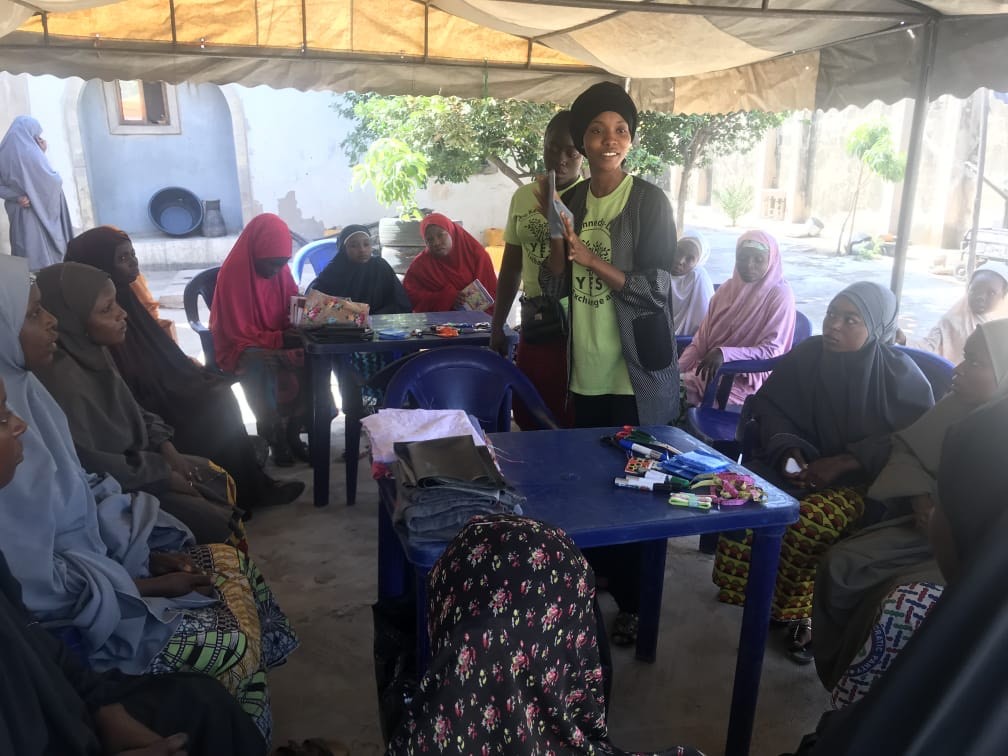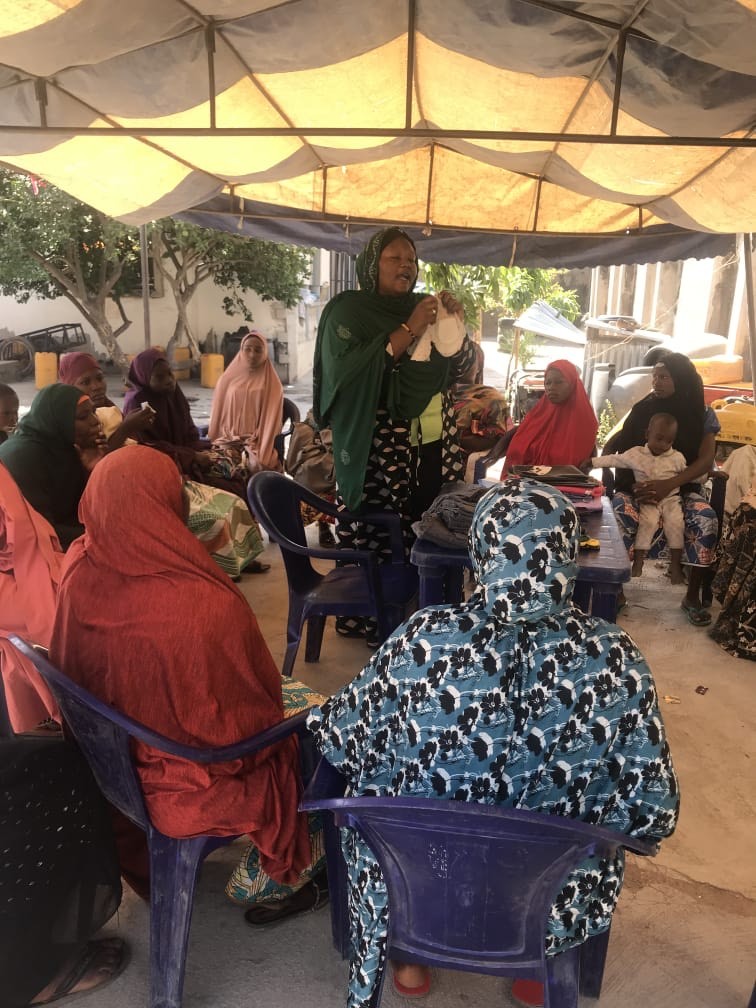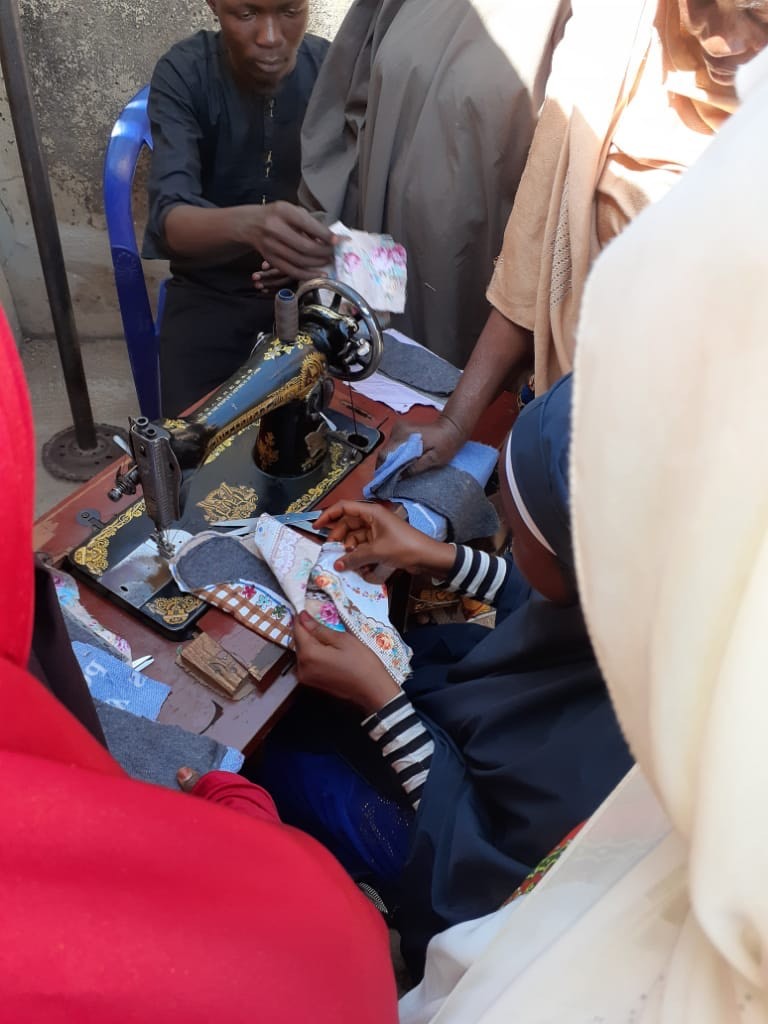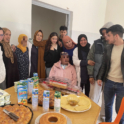Maryame has taken the lessons learned from her exchange year to make a difference in her community.
STORIES
Sustaining Women’s Hygiene with Reusable Pads in Nigeria

In many rural communities around the world, women do not have access to sanitary pads or hygiene products. These products are a necessity for women, and unfortunately, many resort to using rags as their only option which can lead to health problems. YES alumni from the Taraba, Bauchi, and Kaduna states in Nigeria realized this issue was happening in their home country, and chose to implement the “PADS with a Difference” project. The purpose of this project was to train women on how to make reusable sanitary pads, teach them how to use them and encourage them to share what they have learned with others in their community.

Munira Abdul (YES 2012-2013, Hosted by IRIS in Burlington, Iowa) got the idea for this project after attending the Kectil Conference in August, 2019. At the conference, Munira met with Tabitha who is the founder of Wazesha Binti, a non-profit that focuses on women’s menstrual health. Tabitha has organized projects in Kenya where they distributed reusable pads to school girls. After the conference, Munira was inspired by the project and thought why not teach women and girls how to make reusable sanitary pads instead of giving them out?
Cotton fabrics, blankets and thick-leather materials were used to make the reusable pads and the materials are eco-friendly compared to store bought sanitary pads. “Pads with a Difference” was hosted in Jalingo and participants were from nearby villages that lack shop outlet that sells sanitary pads. Due to the limited access to female hygiene products in these remote areas, women often feel embarrassed during their menstrual period and some even choose to stay home instead of managing their periods during their daily social activities. This stigma also leads women to use unsanitary and uncomfortable alternatives if they do leave their homes during their menstrual cycle. The alumni have seen this issue throughout Nigeria and believe that teaching women how to make and use reusable sanitary pads is a sustainable and affordable way to help women in their community.

Over forty women and young girls were trained by YES alumni on how to make the reusable pads. The participants were very excited to learn and found the event very educational and empowering. By the end of the event, every participant had made at least one reusable pad and their questions about the pads were answered. After the event, some participants made plans to open up a business that produces reusable pads in the area.





